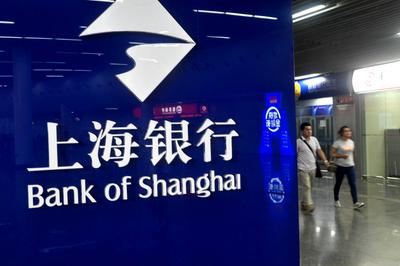China has reached a critical point where fundamental reforms of factor markets are needed to achieve a new and sustainable growth path. Financial reform is at the centre of the new reform agenda. Distortions in interest rates have long caused enormous misallocation of capital – favouring state-owned enterprises and shielding the banking sector from the need to build risk-management capacity, and hurting employment by diverting China’s financial resources from the more dynamic private sector.
Financial reform is connected at the hip to capital account liberalisation and internationalisation of the RMB. The RMB can only become an effective regional or international currency under a convertible capital account. The need for a convertible capital account is a consequence of the scale of China’s cross-border trade and investment payments. Progress toward achieving capital account convertibility and toward the RMB’s becoming a global currency is key to China’s future capacity for economic growth.
These problems are embedded deeply in China’s political economy. They have a political dimension that will cut deeply into the close relationship between state-owned enterprises and the ruling Communist Party. They are the front and the centre of dealing with endemic corruption. They require a fundamental re-vamp of the institutions of Chinese governance.
There is no doubt that the Party leadership is bent on rolling out policies that aim to put China’s economic path on a sounder long-term footing. The momentum is strong. The Third Plenum gathering is the third full meeting of the Party’s current Central Committee, including President Xi Jinping, Premier Li, ministers and the heads of the biggest state firms and banks.
These gatherings have been seminal to change in the past. It was at a Third Plenum in late 1978 that Deng Xiaoping and his supporters inaugurated the series of reforms that began to open up China to trade and foreign investment and loosen state controls over the economy. The round of reform that led China into the WTO was also kick-started at the 1993 Third Plenum. These reforms ended up effectively completing the integration of China’s goods markets with international goods markets.
The current challenge is one of even greater magnitude – the integration of China’s capital markets into international capital markets. Even embarked on now, it’s an ambition that still won’t be quickly achieved. For one thing, it’s not just a narrowly technical economic challenge; integration of China into international capital markets will require a much more open and transparent set of institutional arrangements that push at the envelope of political reform.
The critics at home and abroad reckon that the Xi-Li team hasn’t got the stomach for the whole package, and the package won’t deliver unless it’s taken whole – the hard political reforms as well as the economic reforms. They point to the Party’s recent ‘lurch to the left’, the assertion of one-Party control, campaigns against corruption, and the appeal to old Party verities as evidence of the regime’s incapacity and disinclination to grasp the political dimension of reform.
But the current leadership team – more than half of whom are ‘Princelings’, or members of prominent Communist veteran families – is pragmatic, not dominated by ideology and has more political capital to rein in SOEs and take on entrenched governmental agencies than the last one, led by Hu Jintao and Wen Jiabao.
And, whether they like it or not, political reform has to start with the institutions that surround the Party. The priority is economic reform, the structural imperatives of which are full of unintended consequences for the political system, the risks of which the new leadership seems willing to embrace. And its purchase on political legitimacy with China’s new middle class rests primarily with success in this next phase of economic reform.
Maybe the degree of difficulty in this big game of national reform explains the mini-hype surrounding the recent announcement of the so-called Shanghai Free Trade Zone (FTZ). The Shanghai FTZ is actually a more cautious approach to reform experimentation, best characterised as part of a series of reforms. These reforms are focused on opening up the financial and services sector, de-leveraging debt, reducing financial support to state-owned-enterprises and upgrading industrial infrastructure in order to better allocate resources through the market.
The Shanghai experiment was much more about signalling big changes than delivering them.
Financial and service sector liberalisation can hardly be effectively tested in an area that is insulated from the rest of the economy. How would the FTZ control inward and outward capital leakage? Would a new bank or telecom company established inside the FTZ be able to service clients outside the FTZ?
If the answer is no, then no company would want to establish operations in the FTZ.
If the answer is yes, then it really means nationwide liberalisation.
And that’s the big issue that the leadership must grapple with over the next few days.
Professor Peter Drysdale is the Editor of the East Asia Forum at the Crawford School of Public Policy, Australian National University.

